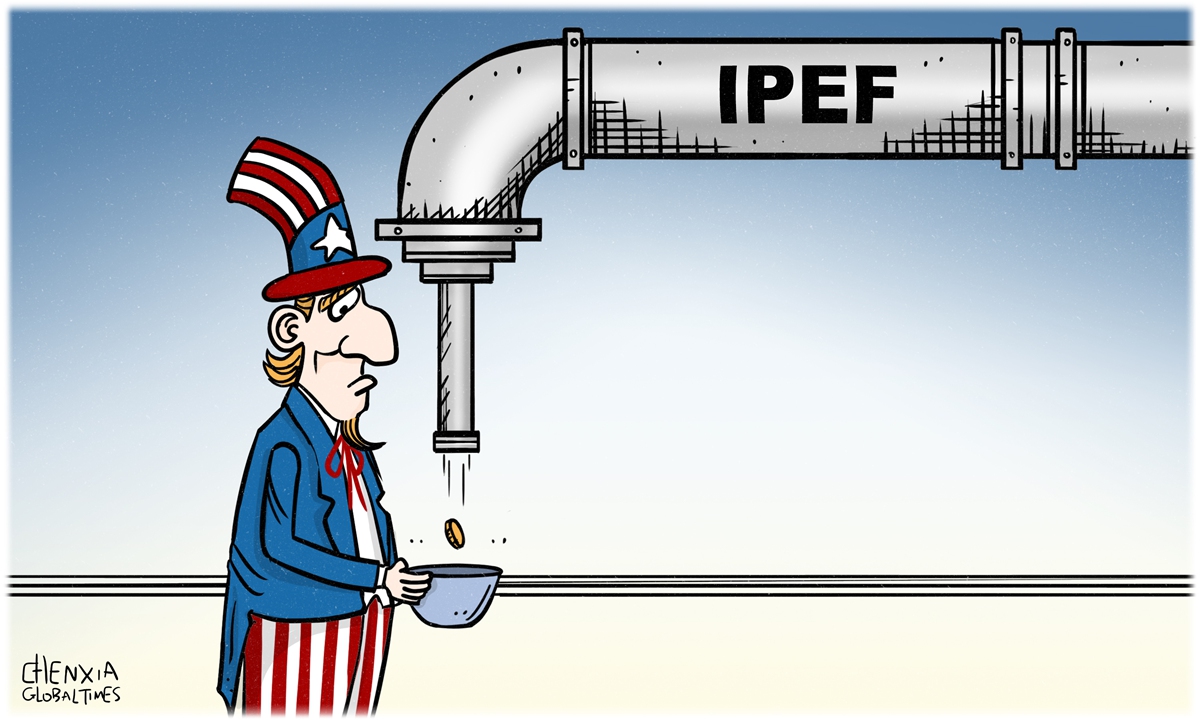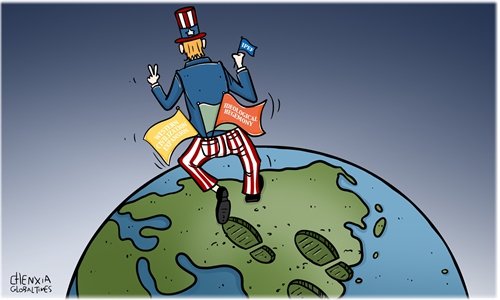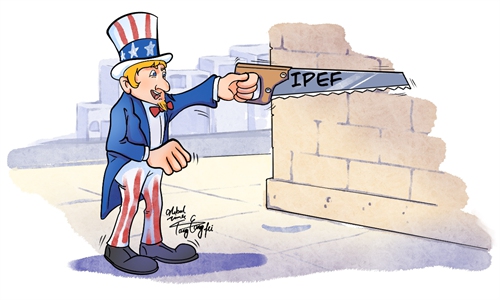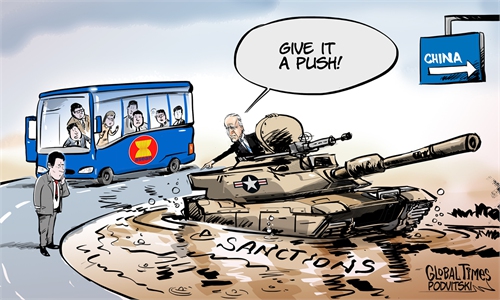
Illustration: Chen Xia/Global Times
US lawmakers are reportedly to soon introduce legislation to funnel more money to the so-called "Indo-Pacific" region to help "counter China", the Financial Times (FT) reported on Sunday.If US politicians truly care about the lives of people in Asia, they are of course welcome to propose initiatives to encourage investment and spur growth. However, that's not the case. The US aim is to stir up geopolitical tensions in the region to harass and impede China's development.
Under President Joe Biden, the US has stated more than once that it regards the "Indo-Pacific" region as being vital to the US' security and prosperity, and that it is determined to strengthen its long-term position in and commitment to the region.
But, many experts have said that the US is "not matching words with resources". Ami Bera, the Democratic chairman of the US' House Asian subcommittee for foreign affairs, and Steve Chabot, the panel's top Republican, hope their "Indo-Pacific Engagement Act" will bridge the gap between the US rhetoric and the funding levels, according to the FT report.
As a matter of fact, the US is not devoting adequate resources to Asia. Biden announced in May the launch of the Indo-Pacific Economic Framework (IPEF), but the high-profile launch didn't conceal the fact that the initiative lacked specific content.
Based on the available information, the US-led economic scheme does not offer increased market access in the US for Asian companies. Without tariff concessions, the framework is unlikely to boost trade flows and bring wealth to Asian countries. The US' "Indo-Pacific" strategy has clear geo-economic aims, but the US does not have the capability or financial means to achieve them.
The so-called "Indo-Pacific Engagement Act" is unable to save the US' "Indo-Pacific" strategy or Biden's IPEF. If anything, it only reveals the fact that the US, facing severe economic hardship at home, is unable to provide real economic input in Asia.
Now, the risk of a sizable recession is growing in the US, after the economy saw a contraction at an annualized pace of 1.5 percent in the first quarter of 2022. The US economy faces growing headwinds at home, so how can it bring investment and spur growth in the Asia as it has pledged?
Asian countries should not be kidnapped by IPEF. They should abandon geopolitical thinking and strengthen economic cooperation among regional economies based on win-win and mutual respect. Only in this way will they avoid sacrificing their own interests to serve as a tool for the US to contain China.
In fact, the IPEF has aroused concern in many countries in Asia. They know perfectly well that economic decoupling from China would bring economic disaster and tumult to the region, as China is the world's major global manufacturing hub, an Asia-Pacific intermediate goods trade center, and an indispensable link in the regional industrial chain.
Moreover, China is the main destination of foreign direct investment in Asia and the main promoter of the development of the global industry chain.
China has always believed that the Asian economy benefits from mutually beneficial cooperation and closer integration. In order to contribute to the prosperity and development of the region, any economic and trade cooperation initiative should be open and inclusive, rather than discriminatory and exclusive, and it should promote regional economic integration rather than dividing and undermining existing mechanisms.
The author is a reporter with the Global Times. bizopinion@globaltimes.com.cn



